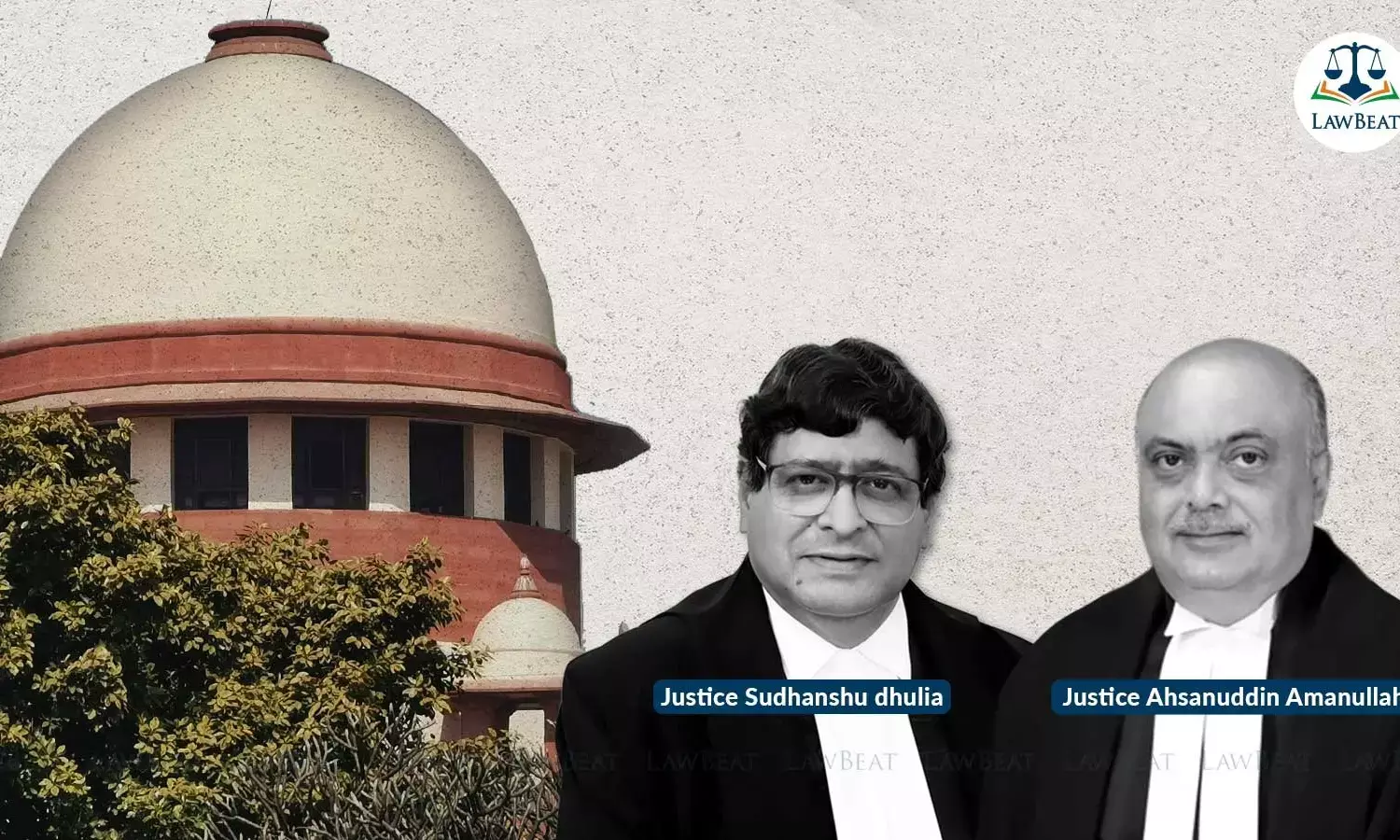Law Cannot Reward a Person for Their Own Wrongdoing: SC

The Supreme Court has reiterated that courts cannot assist individuals seeking relief based on their own wrongful acts. Emphasising that the law “cannot, and does not, reward a person for his or her own wrongs,” the Court dismissed an appeal challenging a Bombay High Court decision that had refused relief to a man who had alienated property in violation of a statutory charge.
A bench of Justices Sudhanshu Dhulia and Ahsanuddin Amanullah made the observation while upholding the High Court’s 2019 ruling in a Letters Patent Appeal, which had affirmed the single judge’s decision to set aside a trial court decree of possession in favour of the plaintiff, Machhindranath.
The dispute related to a 15-acre parcel of ancestral agricultural land in Ahmednagar, Maharashtra. The plaintiff, Machhindranath, had borrowed money from a co-operative society and created a charge on the property under Section 48 of the Maharashtra Co-operative Societies Act, 1960. Subsequently, facing a financial crunch, he sought another loan of ₹5,000 from his nephew and son-in-law (defendant no.1), executing a registered sale deed in his favour on November 2, 1971.
The trial court had ruled the sale void under Section 48 and granted the plaintiff possession. However, both the single judge and division bench of the High Court overturned that ruling.
Before the Supreme Court, the key question was whether the sale deed executed by the plaintiff while the property was under a subsisting charge could be sustained in law. Section 48 prohibits the alienation of charged property without the lender’s consent and renders such alienation void.
However, the Court noted that in this case, the co-operative society never raised a grievance or approached any forum to challenge the sale or enforce its charge.
“The primal purpose is to safeguard the interest of the society which advanced the loan. As a corollary, the right to sue or get a declaration qua any alienation made by a loanee rests and is available only to the society in favour of whom the property under a declaration was charged,” the bench held.
In such a scenario, the Court clarified that Section 48(e), which declares alienations in breach of the charge void, must be read as directory. A transaction, though in violation of the charge, is not void ab initio unless the society—the aggrieved party—moves to challenge it. Therefore, the alienation is at best voidable, not inherently void.
“In the present case, the plaintiff cannot be allowed to benefit from his own wrong and the Court will not be a party to a perpetuation of illegality,” the bench observed, stressing that the plaintiff, having executed the sale and declared the land unencumbered, could not now seek to nullify that act for personal benefit.
The Court found that the plaintiff was attempting to repudiate his own actions without any challenge from the society in whose favour the charge existed, and thus refused to intervene.
Accordingly, the Supreme Court upheld the High Court’s dismissal of the suit and directed that the decree sheet be prepared.
Case Title: Machhindranath S/o Kundlik Tarade v. Ramchandra Gangadhar Dhamne & Ors.
